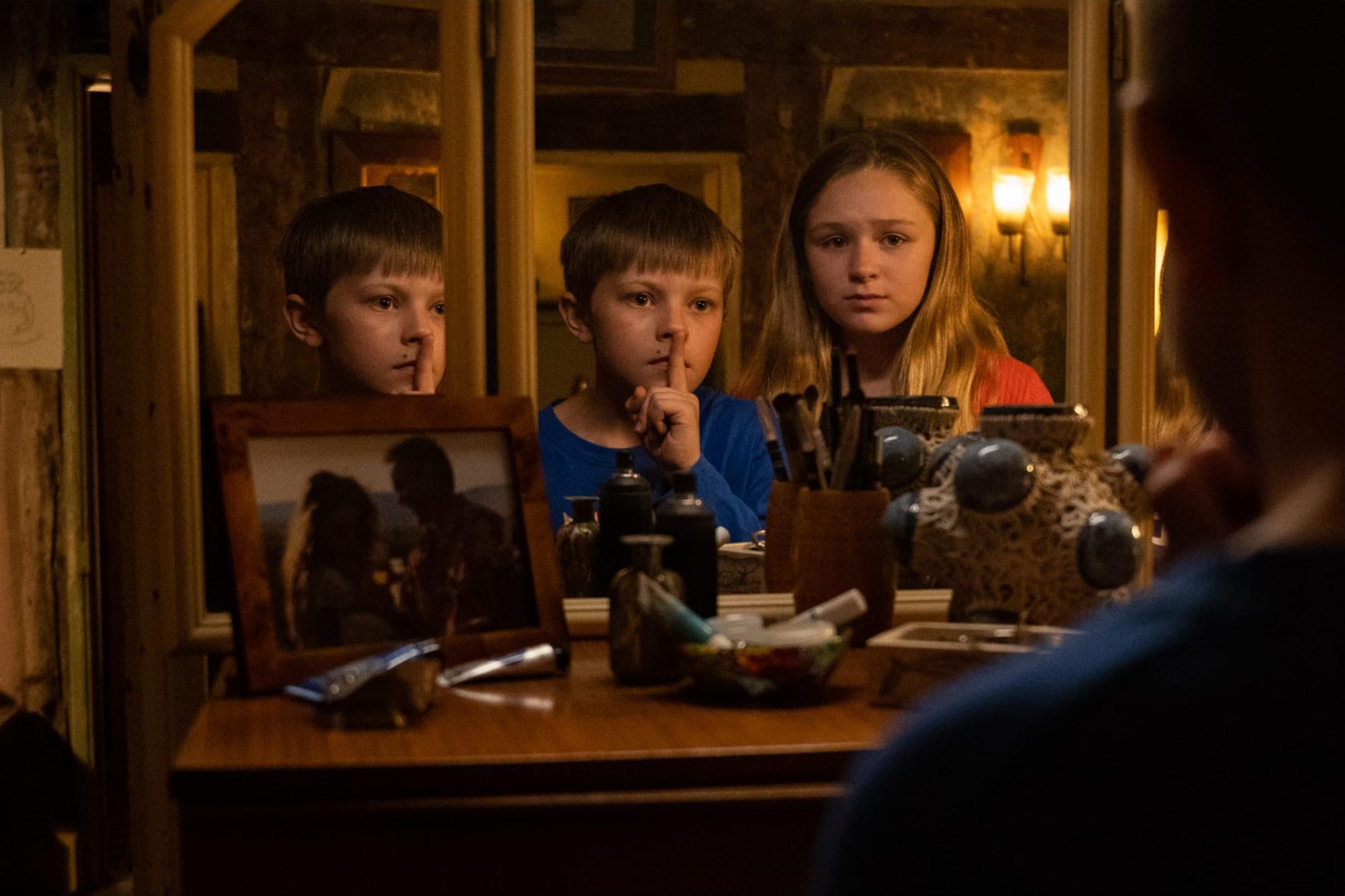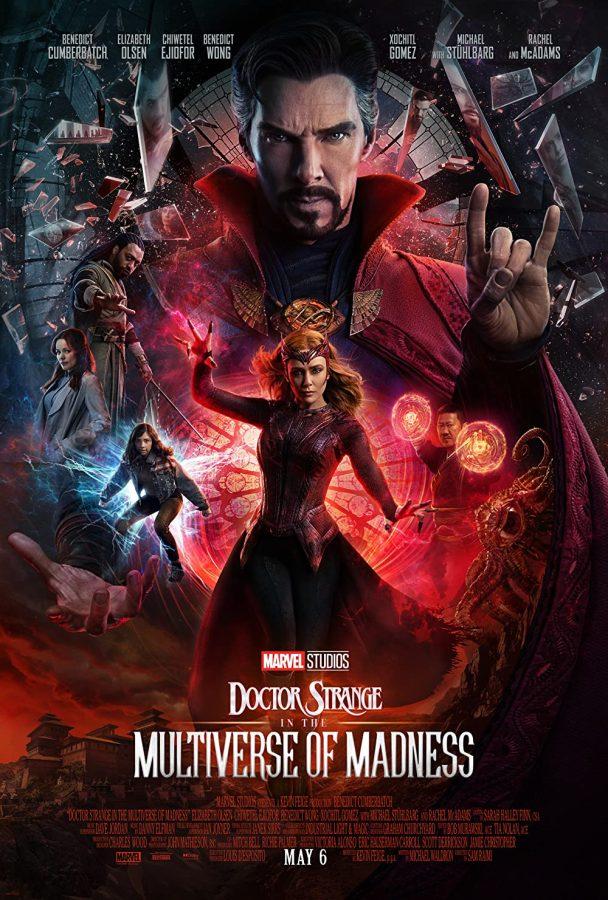This article expresses the views of its author(s), separate from those of this publication. Readers are encouraged to comment or submit a Letter to the Editor to share their opinions. To submit a Letter to the Editor, follow the instructions here.
My first impression of any film trailer begins with a few considerations — who is starring in it, what is the overall tone of the film and, if these are the most exciting scenes, how good can the film truly be?
The trailer for “Speak No Evil” not only met my expectations in its dark and thrilling tone, but what especially caught my eye was the phenomenal performance of well-known actor James McAvoy.
“Speak No Evil” was initially released in theaters in the U.S. on Sept. 13, 2024. James Watkins directed the film, featuring stars like James McAvoy, Scoot McNairy and Mackenzie Davis. Film production company Blumhouse produced the film and has made many of my other favorite horror and thriller films, such as “Get Out,” “Sinister” and “The Purge” film series.
This film is an English language adaptation of the Danish “Speak No Evil” (2022), directed by Christian Tafdrup. Although I have not seen the original and cannot speak to their exact likeness to each other, other reviewers have explained that one of the most significant differences is their ending.
The overarching themes create an intense thriller that puts a dark twist on social pleasantries and how far people are willing to go to maintain social expectations.
A Short Overview
To maintain the suspenseful nature of this film, I do not wish to divulge too many details of the plot but provide a general summation of what the movie is about.
The film follows the interactions between two families who met while on vacation in Italy— consisting of a husband, wife and one child. However, although the film is set in Europe, one of them is an American family that recently moved to London.
After returning home from their vacation, the Daltons (the originally American family) receive an invitation from the Felds to visit their home in the country— which they had mentioned inviting them earlier.
Once they reach the house, the general course and intensity of the film are guided by various situations in which the Daltons are put in an uncomfortable position. In these scenarios, they must decide whether to maintain social decorum or act based on their true feelings.
For example, wife Louise Dalton is offered a piece of duck even though Paddy Feld knows she is a vegetarian. However, to avoid offending their hosts, Louise agrees to try the meat and hums in enjoyment but swiftly spits it out when Paddy is not looking.
As the film progresses, the Daltons soon discover that their newfound friends are not who they appear or claim to be. Paddy’s temper towards their son, Ant, becomes more apparent, and the Daltons feel overwhelmed by their discomfort during their stay.
While the Daltons make multiple attempts to leave, unforeseen events quickly transpire, and they are forced to find a way out of the hole they have dug themselves to survive. The Daltons face the consequences of their actions due to the Feld family’s insistence on proving that they put themselves in this unfound position because they allowed it to happen.

My Take
Overall, this film met my general expectations for how jaw-clenching and nail-biting an experience watching it would be. There were many times that I cupped the sides of my face, anticipating what might happen next and who would make the next move.
The film surprised me with some of the dark turns it took and certain plot elements that I would not have predicted based on the trailer or even earlier scenes.
I also appreciated its commentary on social pleasantries, forcing the audience to consider their actions regarding social situations. Although this is a thriller intended to have you on the edge of your seat, it is still easy to find a deeper message based on the plot.
The overall message that I took away was to not succumb to peer pressure nor social expectations, solely to avoid dealing with confrontation. It is important to speak up for yourself and not fall into the trap of being a people pleaser.
One of the most striking lines in the film, which explicitly shows the heart of this theme, is when Ben Dalton pleads with Paddy, asking him why he is hurting his family in this way. In response to his question, Paddy counters, “Because you let me.” This line alone affirms that the antagonists’ motives revolve around exposing how far people will go to maintain social passivity.
My main qualm with this film was the overall pacing. Although I think the beginning does well in establishing both the relationships between the families and the inner relationships of each member, the ending felt extremely rushed.
I think there reaches a certain point where the context and build-up loses its ferocity, and the bigger, more exciting events must occur. That is not to say I did not enjoy the ending, as I think it did well in concluding the film.
However, I think it could have been extended into earlier scenes instead of cramming all of the biggest events and realizations into the last 30 minutes of the film. I also feel that, once I witnessed the ending, it took away from the film’s suspense for future viewing.
As stated before, I have not watched the original Danish film, so I cannot speak to how they compare in terms of plot or general quality.
Regardless, although I may not be jumping to watch this film again on streaming services, I recommend watching it at least once, especially if you enjoy a good thriller. If nothing else, then to experience the marvelous performance given by James McAvoy, who is, in my opinion, the king of psychological thrillers.
Spinnaker rates “Speak No Evil” 3.5 out of 5 Spinnaker Sails.

___
For more information or news tips, or if you see an error in this story or have any compliments or concerns, contact editor@unfspinnaker.com.




















